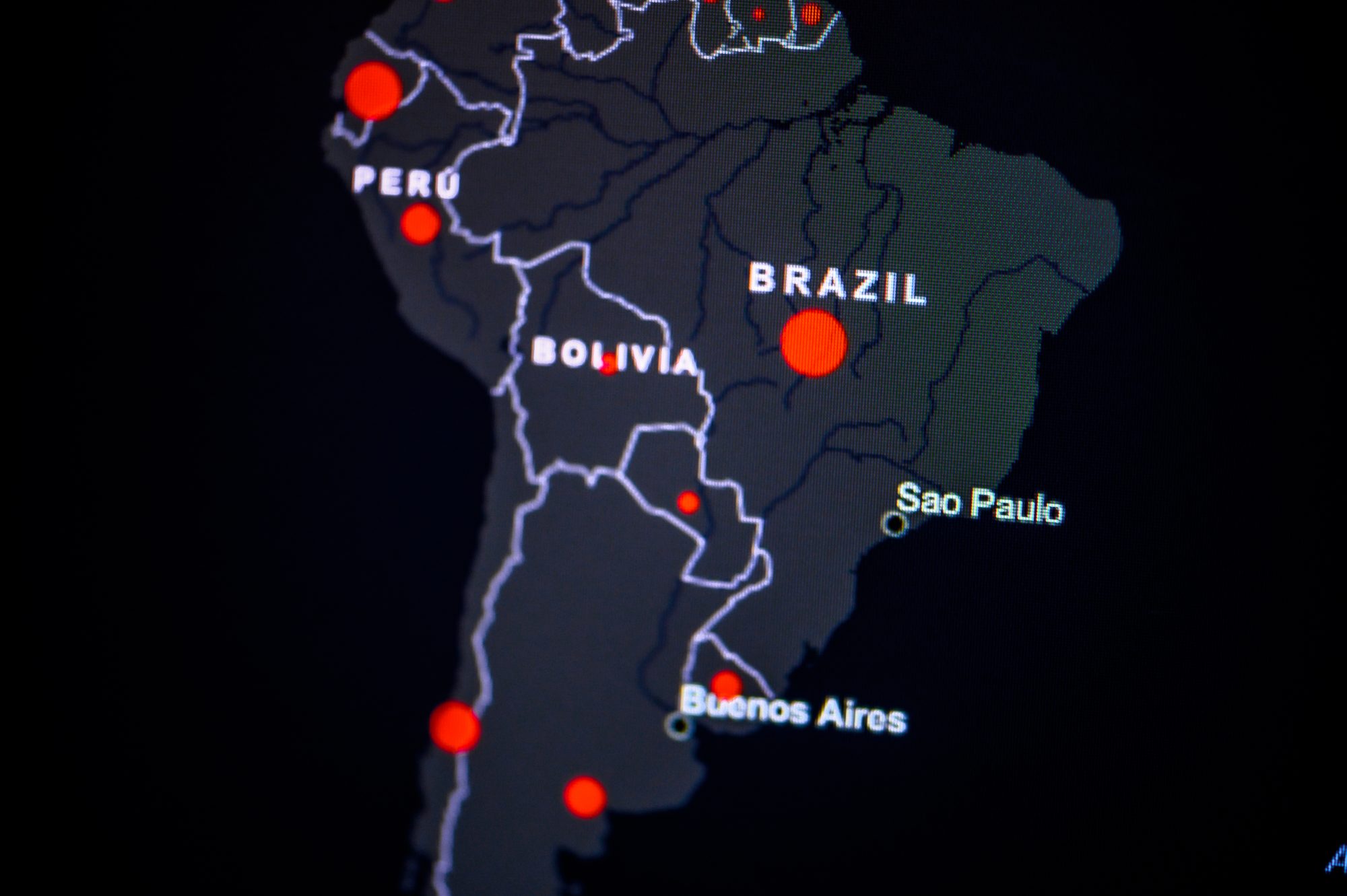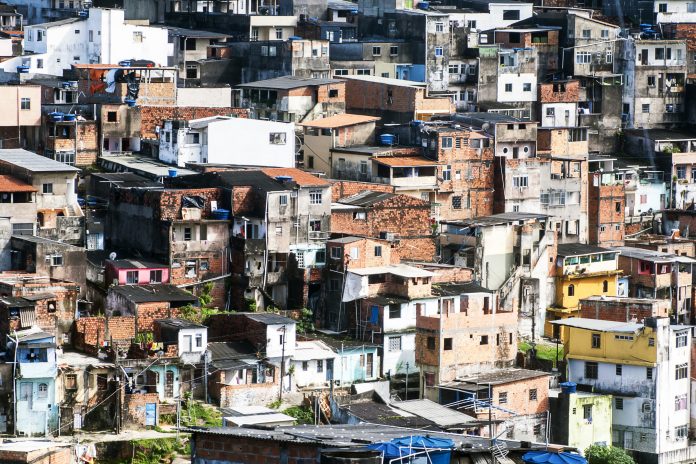Nishat spoke to Laura Fatio, co-founder of Refúgio 343, who discusses her work to support the Venezuelan refugee crisis in Brazil and how COVID changed things
Since 2015, Venezuela has been in a devastating freefall.
The monthly minimum wage in Venezuela is around £1.08, while the price of bread is around £2.09. Basic food is so expensive now, alongside birth control and the cost of rent.
When it becomes impossible to live in the country you are born in, the only survival option is to leave.
Over 6.5 million people left the country over the last five years, becoming the second largest displaced population in the world – behind Syrian refugees.
Laura Fatio is a co-founder of Refúgio 343, who work in Brazil to help thousands of Venezuelan refugees to find a good quality of life in their new surroundings. The impact of the COVID-19 crisis has been remorseless on a community already navigating their own crisis.
1. Firstly, I want to ask, how did you get involved in this work?
“I always felt connected to the refugee cause, probably because of the history of my family. My grandfather came to Brazil with his family from Germany after the first World War looking for a job opportunity and a new life.
“I remember he telling us that his father had money to buy only a bread a day to feed the whole 5-member-family. After school I did volunteer work in Brazil in an Institution that support refugees in São Paulo, and in Switzerland, where I lived for 8 years. Back in Brazil, in 2018, my life partner started to have dreams with a little girl. Each dream the image of the girl was becoming clearer and clearer. One day he identified this girl in an article about the Venezuelan crisis. It was a call for help. We started to study the subject, which is today the biggest migratory challenge of the western hemisphere and the second one in the world, staying only behind the Syrian refugee crisis.
“Thus, in 2019, we launched a crowdfunding effort, formed a group of more than 40 volunteers, developed a structure and raised 40 thousand USD. We started to integrate families from Boa Vista, in the state of Roraima, in the border with Venezuela, in the epicentre of the crisis, to São Paulo and Belo Horizonte. We realised that with our host model, we were able to help a lot of families to re-integrate socioeconomically in Brazil. We went to Boa Vista, visited the refugee camps, made partnership with leading organizations in the response of this crisis.
“we were able to help a lot of families to re-integrate socioeconomically”
“And thus, Refúgio 343 was born, a humanitarian organisation that to date have helped more than 1,000 refugees and migrants to restart their lives in more than 100 cities in Brazil.”
2. Please tell us about the situation of the camps and temporary hospital under COVID-19. Are you receiving help from the local Government?
“The situation is critical. It is a crisis under a crisis. Imagine an emergency context having to deal if another emergency context. The new coronavirus brought additional challenges. For refugees staying home is not an option and comply with physical distancing measures not a reality.
“Due to this pandemic crisis, we launched a campaign – A refuge has never been so important – and an emergency fund to be able to offer during this period more essential support.
“Besides the 13 camps, where the refugees and migrants have support from humanitarian actors, they at least have shelter, food, and basic infrastructure, almost 3 thousand were living in occupancies without access to essential services, drinkable water, electricity and other basic needs to survive.
“almost 3 thousand were living in occupancies without access to essential services”
“Therefore, we raised almost 150 thousand USD to directly help refugees living in these occupancies. Due to our governance, transparency, and organizational structure we could access international funding. One Young World was one of our major funders though the COVID-19 Young Leaders Fund with a support of $20,000 USD. With this amount we could protect 2,094 lives – 821 families in 14 occupancies, distributing 600 food baskets 502 hygiene kits and 800 cleaning kits. Bristol Myers-Squibb also gave us 100 thousand USD and we could also give support to the temporary hospital built for COVID-19 cases with 103,744 medical items donated.

“Our final impact was 2,736 people – 1290 food baskets, 707 hygiene kits, and 3545 cleaning kits in 20 occupancies and emergency spaces.
“Just to contextualise a bit, the humanitarian support to Venezuelans in Roraima is called Operação Acolhida, coordinated by the Brazilian Armed Forces (Navy, Army, and Aeronau’cs), UNHCR and IOM. And Refúgio 343 is one of the actors, dedicated entirely to the reintegration process of these families in Brazil. We also operate in Boa Vista 2 units of the Escola Refúgio (Refuge School), which offers them cultural adaptation, Portuguese classes, informatics and other technical trainings, with a curriculum of 108 hours of studies to prepare them for the integration process and their new life in Brazil.
“Besides, we also partner with corporations for job opportunities all around Brazil.”
3. And in a more personal sense, how are the Venezuelan refugees feeling about the future? How is their mental health in this situation?
“Great question.
“In December, in partnership with Volunteer Vacations, we brought to Roraima a group of doctors and other volunteers to give medical support in 5 campos for 6 days. We take the opportunity to run a humanitarian research, with 160 interviewed refugees and found out interesting results. Although they are emotionally shocked they have dreams and they have hope.
“Although they are emotionally shocked they have dreams and they have hope.”
“These are the top answers when we ask our refugee population, what is your dream?”
- Stay in Brazil and bring their families to Brazil;
- Job opportunity or start their own business;
- A better life and offer good conditions to their children;
- To have their own house;
- To graduate and offer education opportunities to their children.
4. Are you coming across any obstacles in your work?
“Brazil is the fifth destination country chosen by displaced Venezuelans. Although there is a language distance it is one of the best places in term of reception and opportunity. There are more than 120 agencies addressing the crisis supported by the federal government. Actually, Brazil is the country with the highest number of recognised asylum seekers as refugees in Latin America.”
5. Many of the Venezuelan refugees are fleeing an impossible living situation. What do you hope will change for the people still in Venezuela?
“Venezuela is going through a socioeconomic and political crisis.
“According to the research we run in Boa Vista, Roraima, north of Brazil in the border with Venezuela, in December 2020, with 160 Venezuelan refugees and migrant living in the camps, the top 3 reasons to leave Venezuela are unemployment, health and hunger.”
Laura is a One Young World ambassador, and recipient of the Covid Young Leaders Fund.




![Europe’s housing crisis: A fundamental social right under pressure Run-down appartment building in southeast Europe set before a moody evening sky. High dynamic range photo. Please see my related collections... [url=search/lightbox/7431206][img]http://i161.photobucket.com/albums/t218/dave9296/Lightbox_Vetta.jpg[/img][/url]](https://www.openaccessgovernment.org/wp-content/uploads/2025/04/iStock-108309610-218x150.jpg)






